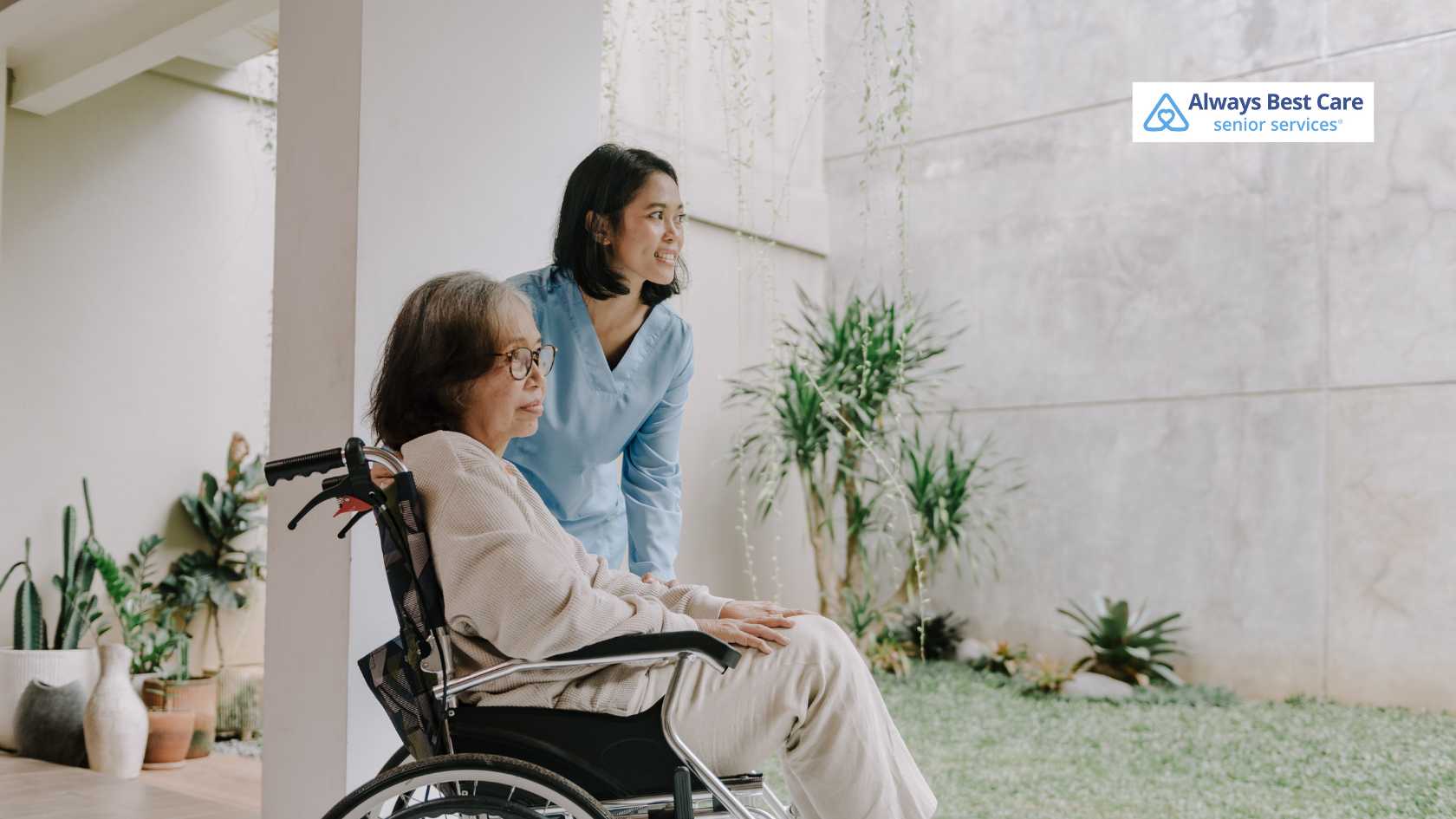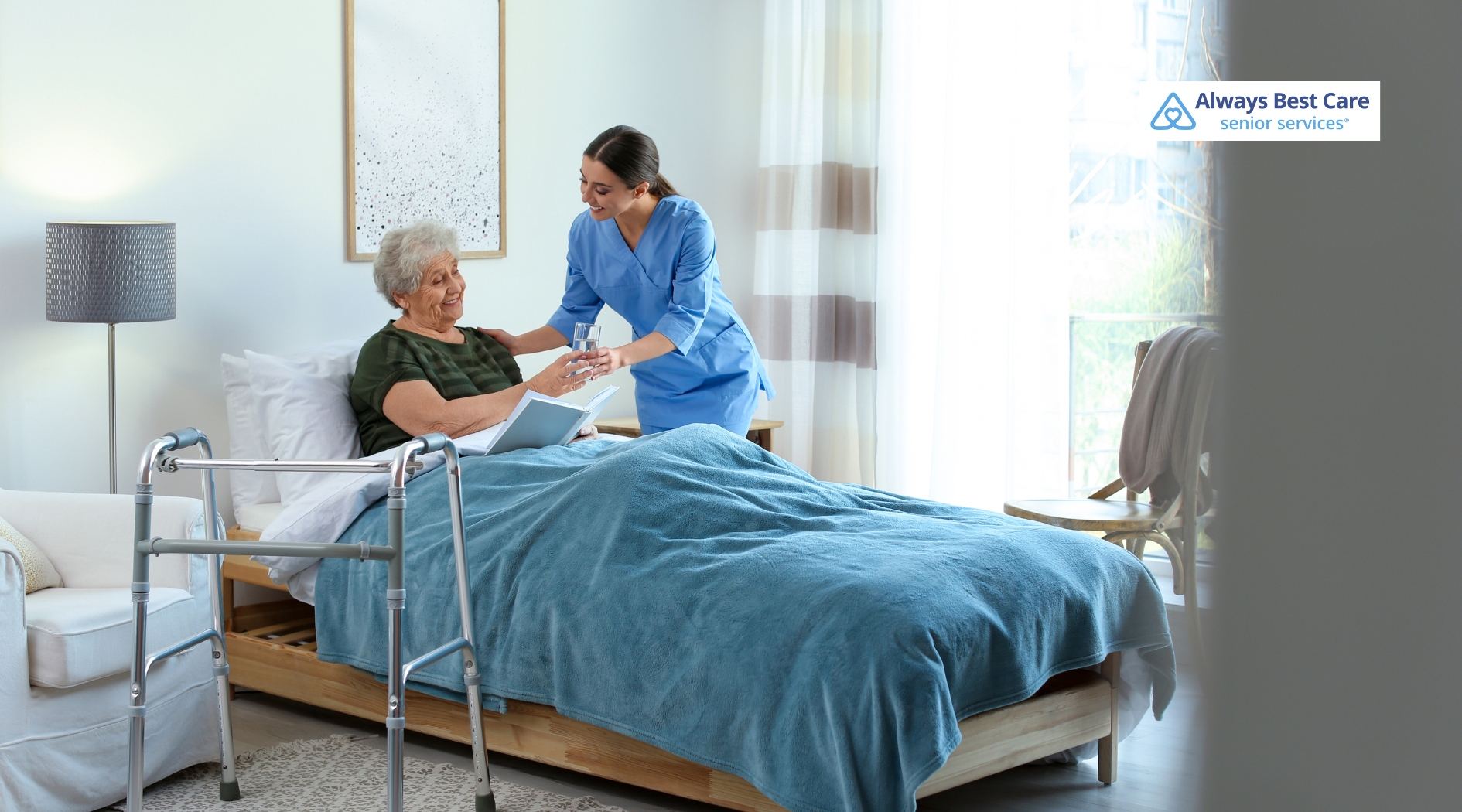Making Home Safe for Seniors Aging in Place

Aging in place allows seniors to maintain their independence and stay in the comfort of their own homes. However, making the home a safe and supportive environment is essential to prevent accidents and promote a better quality of life.
At Always Best Care of Princeton, we’re here to guide you with practical tips and solutions to ensure your loved ones are safe and secure.
Table of Contents
Understanding the Challenges of Aging in Place
Aging in place comes with unique challenges.
Mobility issues, vision changes, and memory loss can all increase the likelihood of accidents at home. Everyday tasks like navigating stairs, using the bathroom, or preparing meals might feel more difficult without the right adjustments.
Acknowledging these challenges is the first step toward creating a safer home.
Evaluating Your Home for Safety Risks
Take a close look at each room in your home to identify potential hazards.
Common risks include loose rugs, cluttered walkways, poor lighting, and slippery surfaces.
Entryways, stairs, and bathrooms are most likely to be the site of accidents, so pay extra attention to these spaces.
9 Home Modifications to Improve Accessibility
Making a home more accessible ensures seniors can move around comfortably and complete daily tasks more easily.
Here are some key modifications to consider:
- Install Ramps at Entrances
Steps can be challenging for seniors, especially those using wheelchairs or walkers. Ramps provide a smoother, safer way to enter and exit the home. Portable or permanent ramps can be customized to fit the space, ensuring convenience without compromising the home’s appearance. - Widen Doorways
Standard doorways can be too narrow for wheelchairs or walkers to pass through easily. Widening doorframes allows for more freedom of movement, reducing the risk of accidents or frustration. Pocket doors or swing-clear hinges can also create additional clearance. - Lower Countertops and Shelving
High countertops or shelves can be difficult to access for seniors with limited mobility. Adjusting these features to a more reachable height ensures that items like dishes, food, or toiletries are always within easy reach, minimizing the need for stretching or climbing. - Adjust Light Switches and Outlets
Light switches and electrical outlets that are too high or low can be inconvenient. Placing them at an accessible height allows seniors to use them without bending down or reaching too high, making the home more functional. - Install Lever-Style Door Handles
Traditional round doorknobs can be difficult for seniors with arthritis or reduced hand strength. Lever-style handles are easier to operate and can be installed on doors throughout the home. - Create Zero-Threshold Entryways
Thresholds, even small ones, can become tripping hazards. Removing or lowering thresholds at doorways ensures smooth transitions between rooms and makes it easier for seniors to navigate with mobility aids. - Add Stairlifts or Elevators
Stairlifts or small residential elevators can provide a safe and practical solution for multi-story homes. These additions allow seniors to access all levels of their homes without the physical strain of climbing stairs. - Upgrade Closet Spaces
Sliding or bi-fold closet doors and pull-down rods make accessing clothes and personal items more manageable. Adjustable shelving within closets can also provide flexibility as needs change. - Improve Bathroom Accessibility
Consider installing a walk-in shower, lowering sink heights, and adding accessible storage for toiletries. These adjustments can make daily hygiene routines easier and safer.
Preventing Falls Throughout the Home
Falls are a leading cause of injury for seniors, but many are preventable.
To reduce risks, remove clutter from walkways, secure rugs with non-slip pads, and use non-slip flooring. Grab bars can also be installed in hallways and next to stairs to provide additional support, and handrails on both sides of staircases make them safer to navigate.
Kitchen Safety Tips
A well-organized kitchen promotes safety and ease of use.
Frequently used items like pots, pans, and utensils should be within reach to avoid overreaching or bending.
Stoves can be equipped with automatic shutoff devices to prevent accidents, and bright, focused lighting over workspaces helps with visibility.
The Role of Technology in Home Safety
Technology can make a big difference for seniors who are aging in place.
Motion-activated lights improve visibility at night, while medical alert systems provide immediate access to help if needed.
Smart home devices, such as video doorbells and security cameras, enhance the security and peace of mind of seniors and their families.
The Benefits of Counseling for Seniors
Counseling allows seniors to navigate the emotional challenges that often come with aging. It’s a supportive and practical way to build resilience and embrace life’s changes. Here are some key benefits of counseling for seniors:
- Creates a Safe Space to Express Feelings
Aging can bring about a range of emotions, from grief over losing loved ones to frustration with physical limitations. Counseling offers a confidential and supportive environment where seniors can share their thoughts and feelings without judgment. - Develops Coping Strategies
Life transitions, such as retirement or changes in health, can feel overwhelming. Counselors help seniors identify practical ways to manage stress, adjust to new routines, and maintain balance. - Improves Mood and Emotional Health
Loneliness, anxiety, and sadness can take a toll on mental well-being. Counseling provides tools to combat these feelings and fosters a more positive outlook, improving overall happiness and quality of life. - Strengthens Relationships
Communication challenges often arise as families navigate caregiving roles or changing dynamics. Counseling helps seniors and their loved ones understand each other’s perspectives and build stronger, healthier relationships. - Supports Resilience in Life Transitions
Whether moving to a new home, adapting to physical changes, or facing the loss of independence, counseling empowers seniors to approach these transitions confidently and adaptable. - Reduces Feelings of Isolation
Many seniors experience isolation as social circles shrink. Counseling helps combat loneliness by providing meaningful interaction and encouraging participation in community or family activities. - Encourages Self-Discovery and Growth
Aging is also a time for reflection and rediscovery. Counseling can guide seniors to explore new interests, redefine goals, and find joy in activities that bring purpose and fulfillment.
Encouraging Your Aging Parent to Seek Help
Starting a conversation about seeking help can feel daunting, but it’s an important step.
Frame the discussion around how support can enhance their independence and quality of life. Point out specific examples, like how a caregiver could assist with household tasks or how simple home adjustments could make daily activities easier.
If you’re unsure how to approach the topic, we at Always Best Care of Princeton offer guidance and resources to make the process smoother for everyone involved.
Maintaining Social Connections and Emotional Well-Being
A safe home isn’t just about physical adjustments—it’s about creating a space where seniors feel connected and happy.
Encourage your senior loved one to stay socially active by hosting visitors, joining virtual gatherings, or pursuing hobbies that bring them joy. A welcoming and supportive home makes it easier to maintain those connections.
How Always Best Care of Princeton Can Help
At Always Best Care of Princeton, we’re committed to making aging in place a safe, comfortable, and enriching experience for seniors. We understand that every situation is unique, and we’re here to provide the personalized support you and your loved ones need.
Here’s how we can help:
- Customized Care Plans: We work closely with you to develop a care plan tailored to your loved one’s needs, preferences, and goals, ensuring they receive the right level of assistance.
- Home Safety Evaluations: Our team can assess your home and recommend modifications to enhance safety and accessibility, such as installing grab bars or improving lighting.
- Compassionate Caregivers: Our caregivers help with daily tasks, provide companionship, and offer emotional support, giving you peace of mind and your loved one the care they deserve.
- Access to Trusted Resources: We’re here to connect you with counseling services, assistive technologies, and community programs and to guide you to the best available resources.
Let’s Create a Safe and Happy Home for Your Senior Loved One!
At Always Best Care of Princeton, we believe every senior deserves to age in place with confidence and comfort. Whether it’s ensuring their home is safe, providing emotional support, or offering companionship, we’re here to help. Contact us today to learn more about how we can assist your family in creating a safe and fulfilling environment for your loved one!
Contact Always Best Care of Princeton at (609) 455-2886 to learn more and schedule your free consultation. Let’s create a custom care plan that helps your loved one live the best life possible in their golden years. Together, we can ensure that their home remains a safe and joyful place to age gracefully.





